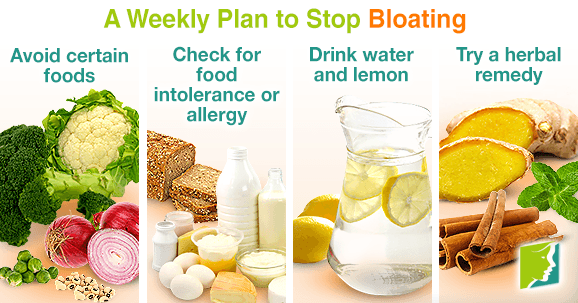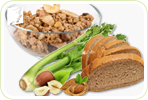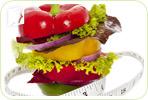Bloating is the feeling when a person's stomach is swollen and slightly distended or feels like it is full of air. Although it is generally not a sign of anything serious it can be uncomfortable and embarrassing for many people. So we have come up with some key tips as part of a weekly plan to stop bloating in its tracks. Keep reading to find out more.
Avoid Certain Foods
Things like beans, broccoli, cauliflower, onions and sprouts are all known to cause excess gas and wind so they should be avoided while trying to decrease bloating. It is important to make sure you still consume five portions of fruit and vegetables per day to maintain a good basis of nutrition. The other main thing to avoid is fizzy or gaseous drinks. Things like Coco Cola, lemonade and anything else with bubbles in (including champagne) is literally just adding gas to your stomach and will make bloating much more likely to occur. Taking probiotics can be helpful as they provide “good” bacteria to the gut, aiding digestion and soothing the stomach. Various yoghurts (as long as they are “bio live”) as well as buttermilk or kefir are all natural sources of probiotics.
Check for Food Intolerance or Allergy
A food allergy or intolerance can be one of the biggest causes of bloating, and often people remain completely unaware of what foods they might not be able to stomach. If you have an intolerance to wheat then you could have Celiac disease which will mean you have to cut out gluten. Other common food intolerances include dairy products and yeast. There is no medical way to determine these allergies or intolerances. The best method is to eliminate a certain food from your diet for a certain amount of time and see if it makes a difference to the feeling of bloating and digestive process.
Drink Water and Lemon
Although many people limit their water intake if they feel bloated, because they think it makes the condition worse or that they are “holding water” and therefore they need to drink less. The opposite is true though, as dehydration is unlikely to solve any health problem. Water can help flush things from your system, acting as an interior cleanser. Combined with lemon, which is a mild laxative and natural diuretic, it can help to activate a sluggish system and help get rid of excess gas. It can also reduce the amount of salt in the body, also helping to reduce bloating. When drinking, try to avoid using straws as this can lead to swallowing air and exacerbate the symptoms of bloating.
Try a Herbal Remedy
There are certain herbs which can help with digestion and bloating. Ginger is the most well-known tonic for stomach problems as it is a carminative - a substance that helps to get rid of gas from the body. It does this by speeding up the digestive process, meaning that the stomach empties faster and consequently gas is released quicker. However, it is not the only option. Both peppermint and cinnamon are also useful in reducing bloating. All three of these things can be taken as an herbal tea or in a variety of other ways, although it is always recommended to try and obtain them from natural sources before turning to herbal supplements.
These are just suggestions and there are several other natural and easy options to try and reduce bloating. As it depends on the cause it can be a very individual process to find out what works best. If the bloating does not go away after three weeks it is wise to consult a medical practitioner to rule out Irritable Bowel Syndrome, Coeliac Disease or something else which might require specific treatment.
Sources
- Everyday Health. (n.d). Home Remedies for Gas and Bloating. Retrieved January 30, 2015 from http://www.everydayhealth.com/health-report/gas-and-bloating/home-remedies-for-gas.aspx
- NHS Choices. (2014). Beat the Bloat. Retrieved January 30, 2015 from http://www.nhs.uk/Livewell/digestive-health/Pages/beat-the-bloat.aspx




